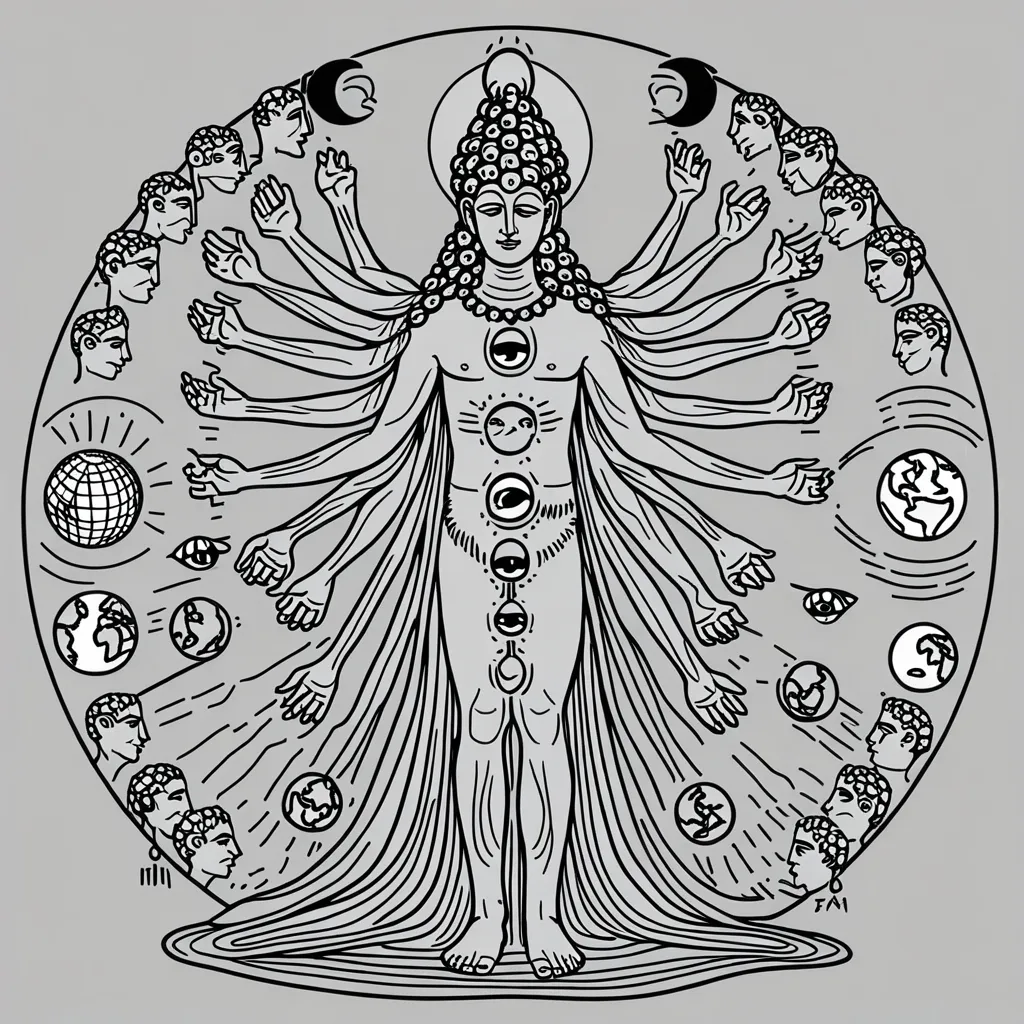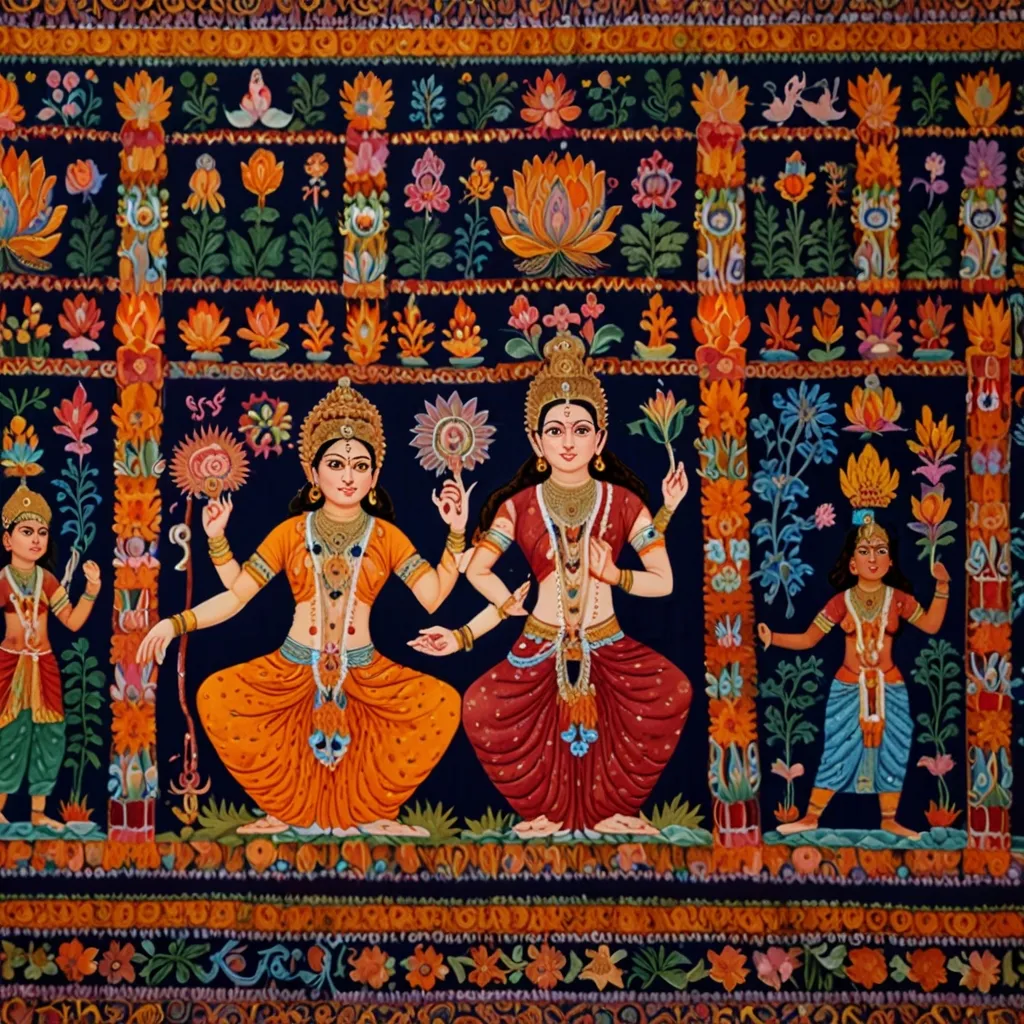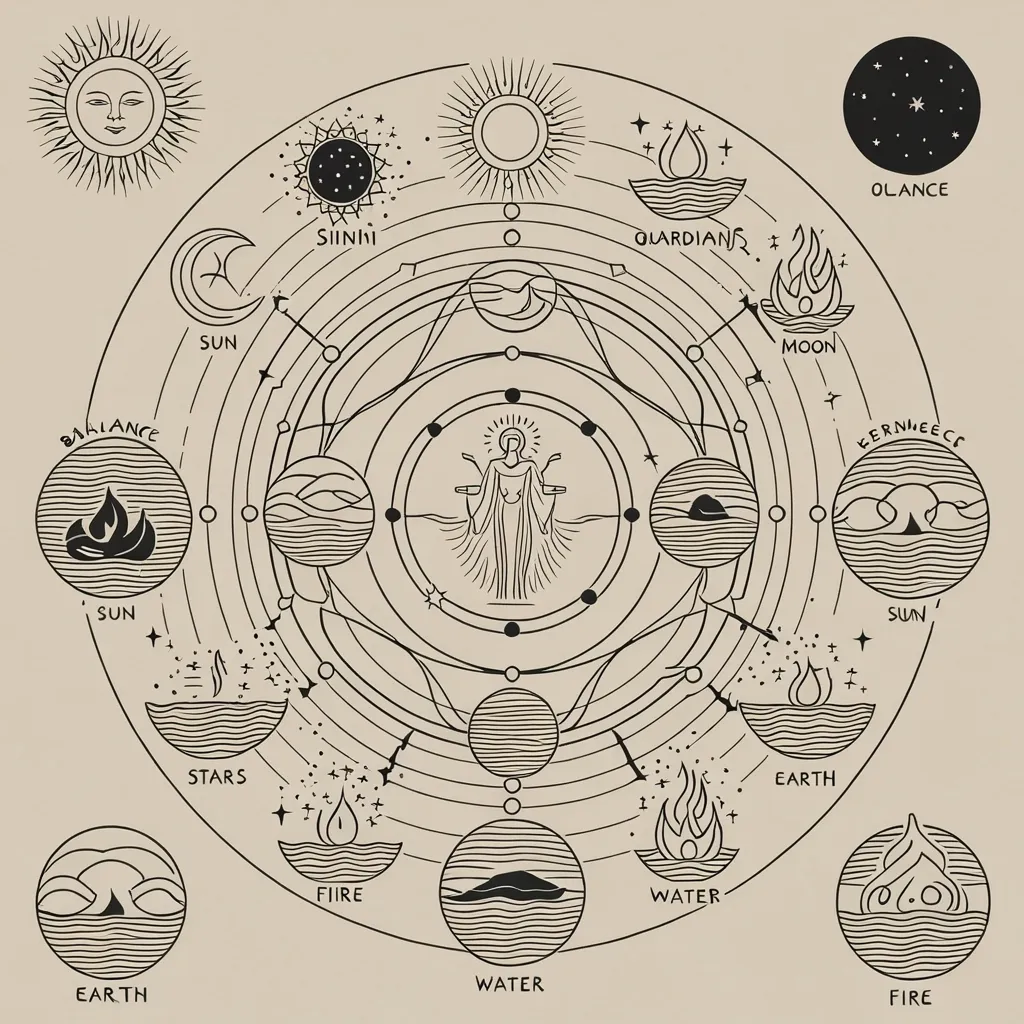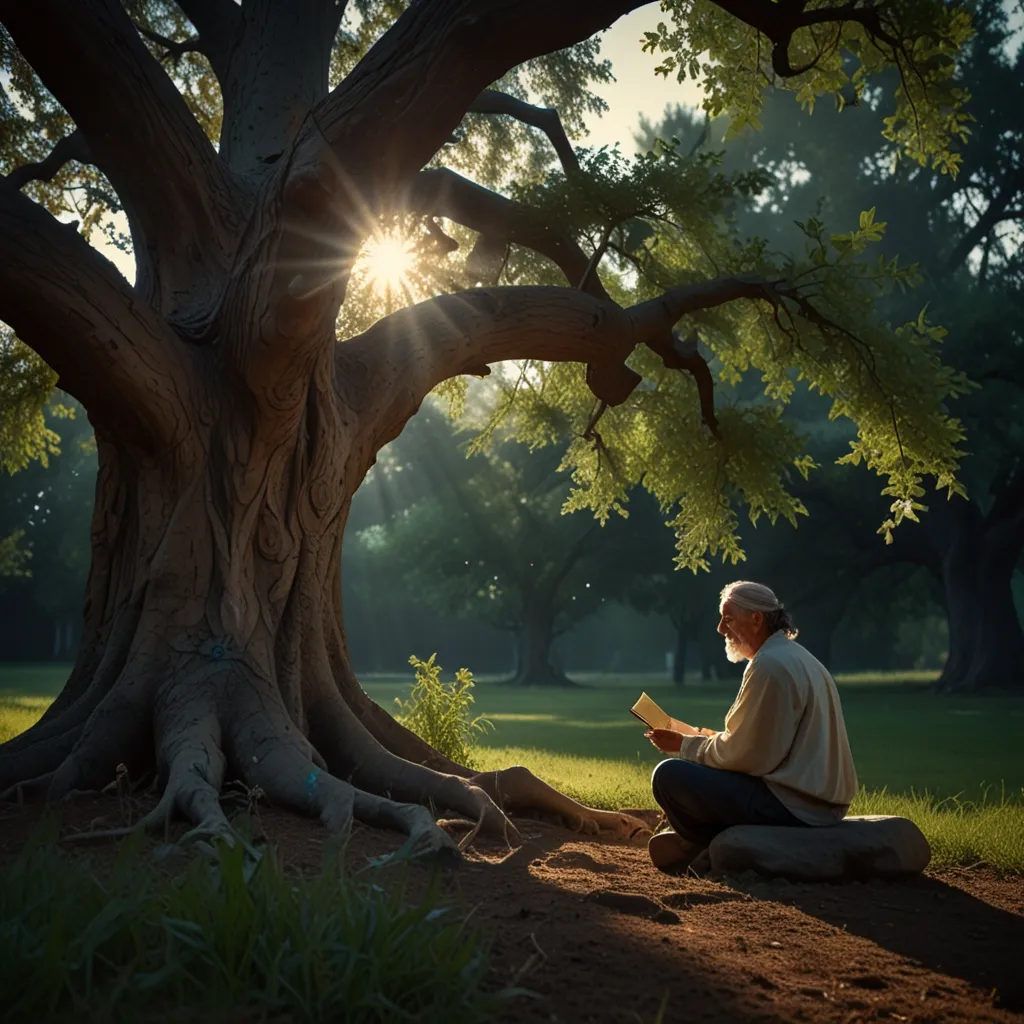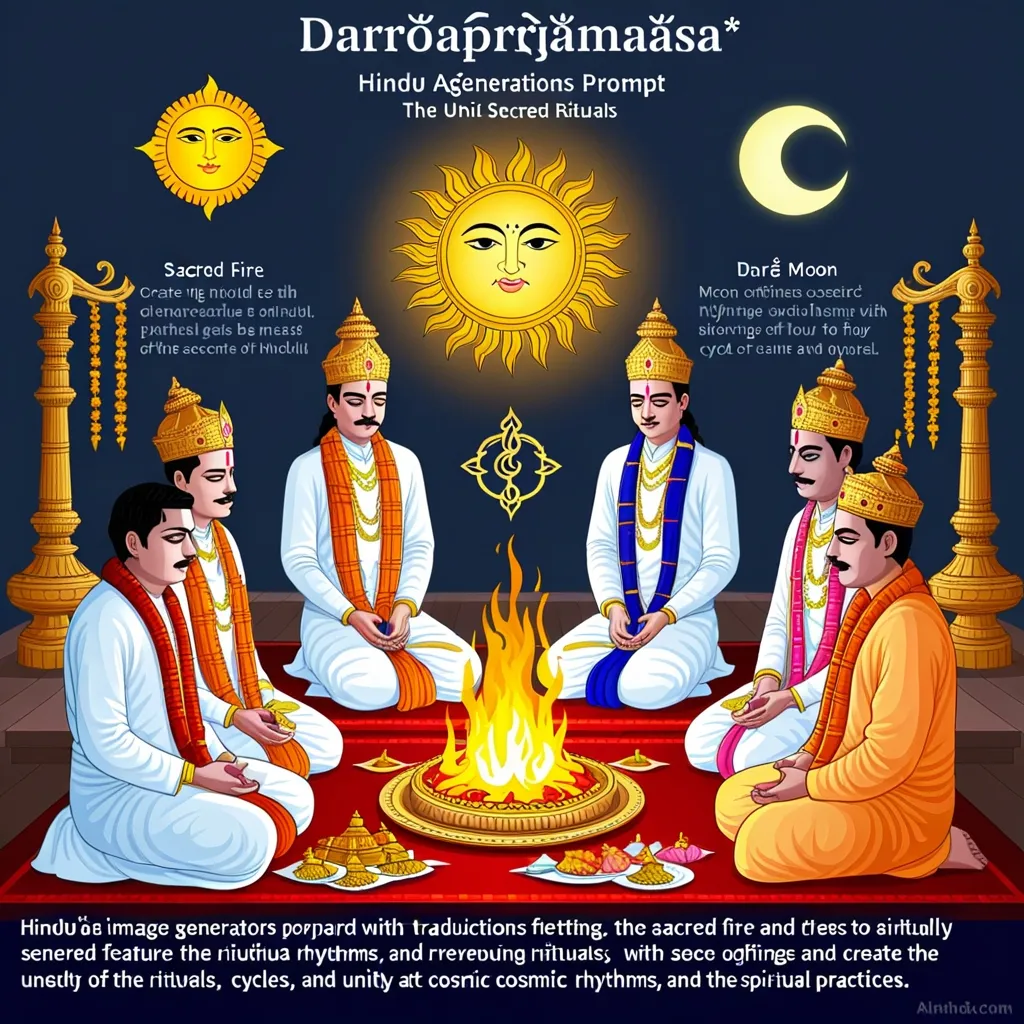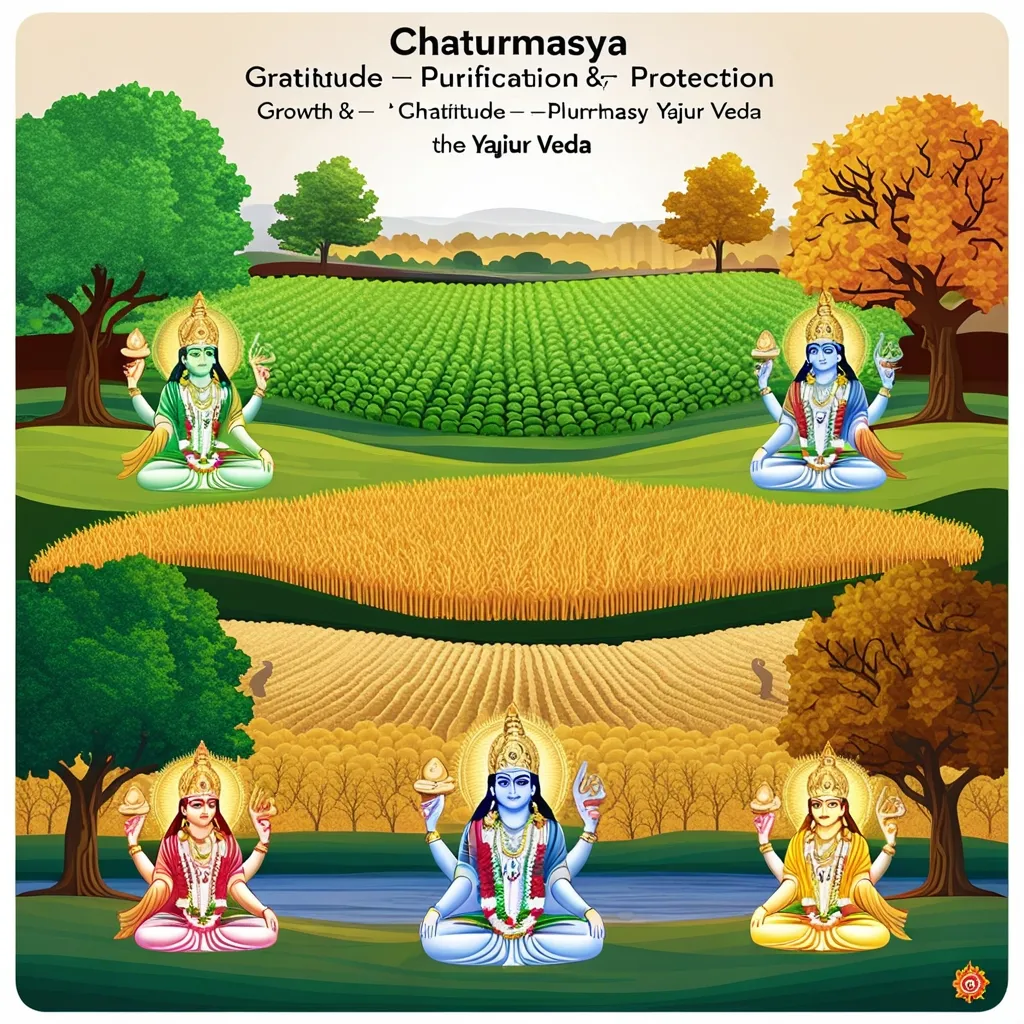The Purusha Sukta is one of those gems in Hindu scriptures that leaves you thinking, “Wow, that’s deep.” Found in the Rigveda, this ancient hymn might be an oldie, but it packs timeless wisdom about the universe, creation, and how everything is interconnected. This isn’t your standard myth; it’s a profound peek into the core of Hindu philosophy and spirituality.
So, who or what exactly is Purusha? Imagine a Cosmic Being so vast that it represents everything—everywhere. This Purusha has a thousand heads, eyes, and feet, kinda enveloping the entire universe and then some. It’s a poetic way to say Purusha is in everything, everywhere, all at once (and no, that’s not a movie reference). Purusha isn’t just hanging out being all divine and cosmic; he’s the dynamic force behind creation itself. Think of him as the ultimate source, often linked with deities like Vishvakarma, Hiranyagarbha, or Prajapati. These names represent the divine touch in the cosmos’ grand design.
Now for the cool part: the creation story. According to the Purusha Sukta, the universe sprang into existence from a sacrifice of Purusha himself. This primordial sacrifice, known as Yajna, pretty much kickstarted everything. From Purusha’s body, various elements of the cosmos emerged: the moon from his mind, the sun from his eyes, Indra and Agni from his mouth, air from his breath, the sky from his navel, and the earth from his feet. It’s like an ancient, poetic Big Bang theory but with a divine twist.
This harmonious explosion didn’t just create the physical world; it also shaped society. The four varnas or social classes came from different parts of Purusha’s body. The Brahmins emerged from his mouth, the Kshatriyas from his arms, the Vaishyas from his thighs, and the Shudras from his feet. This social hierarchy is seen as an organic, essential part of cosmic order, reflecting how society mirrors the universe’s interconnectedness.
At the core of this hymn is Yajna—the primordial sacrifice. But it’s not just about rituals. Yajna is the essence of existence; it’s the source of energy from which the world is created and sustained. One of the Sukta’s verses even mentions that Yajna rose from this original sacrifice, highlighting its pivotal role in the cosmic scheme.
However, the Purusha Sukta is not just another creation myth. It’s a philosophical treasure trove. It speaks to the spiritual unity of the universe, suggesting that everything past, present, and future is part of the Purusha. This idea is similar to panentheism, where the divine is both in-and-above the world.
The hymn weaves together deep principles of Hindu philosophy, such as meditation, knowledge, devotion, and duties through rituals (think of themes you’d also find in the Bhagavad-gita or Bhagavata Purana). These ideas underscore the Sukta’s enduring significance.
Beyond philosophy, the Purusha Sukta is woven into the fabric of Hindu rituals and ceremonies. It’s chanted in almost all Vedic rituals, whether during prayer ceremonies to Vishnu or Narayana, installation ceremonies, fire sacrifices, or daily recitations. The mantras are not just for show; they aid in meditation and personal spiritual growth. Talk about practical and profound!
Even today, the Purusha Sukta is surprisingly relevant. Its themes of unity and interconnectedness resonate with modern views of the universe. The idea that everything is made of the same fundamental substance sounds a lot like contemporary scientific theories. Plus, the hymn’s emphasis on societal cohesion offers a balanced perspective on how society should function even in today’s fast-paced world.
The Sukta’s layered philosophies continue to inspire spiritual seekers and scholars alike. It’s a rich tapestry of ideas that transcend time and culture, presenting a mystical but grounded understanding of the universe, creation, and humanity.
In a nutshell, the Purusha Sukta is not just some ancient text gathering dust. It captures the essence of Hindu philosophy and spirituality, offering profound insights into the nature of the universe and human existence. It’s a cosmic hymn that continues to inspire, inviting us to connect with the deeper mysteries of being. Whether you’re a hardcore philosopher, a spiritual seeker, or just someone who loves a good cosmic tale, the Purusha Sukta has something for you. And really, who couldn’t use a little ancient wisdom in their life?
